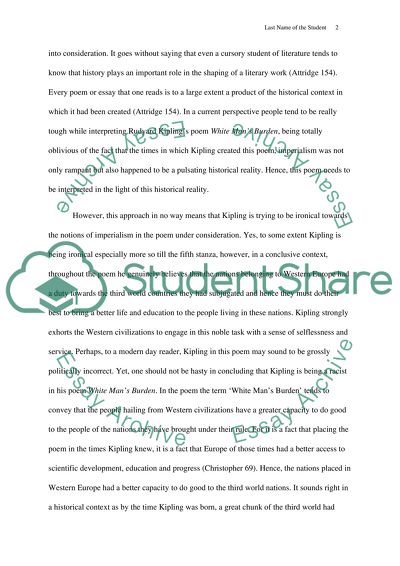Cite this document
(“Kiplings White Mans Burden and Orwells Shooting the Elephant Research Paper”, n.d.)
Kiplings White Mans Burden and Orwells Shooting the Elephant Research Paper. Retrieved from https://studentshare.org/literature/1473697-book-analysis-rudyard-kiplingyies-poem-ypwhite
Kiplings White Mans Burden and Orwells Shooting the Elephant Research Paper. Retrieved from https://studentshare.org/literature/1473697-book-analysis-rudyard-kiplingyies-poem-ypwhite
(Kiplings White Mans Burden and Orwells Shooting the Elephant Research Paper)
Kiplings White Mans Burden and Orwells Shooting the Elephant Research Paper. https://studentshare.org/literature/1473697-book-analysis-rudyard-kiplingyies-poem-ypwhite.
Kiplings White Mans Burden and Orwells Shooting the Elephant Research Paper. https://studentshare.org/literature/1473697-book-analysis-rudyard-kiplingyies-poem-ypwhite.
“Kiplings White Mans Burden and Orwells Shooting the Elephant Research Paper”, n.d. https://studentshare.org/literature/1473697-book-analysis-rudyard-kiplingyies-poem-ypwhite.


